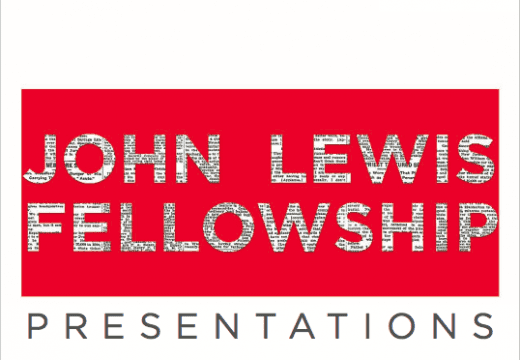Details
Article
Clever Hans is one of the best examples how a self- fulfilling prophecy works and how our expectations or the expectations of others influence our behavior
Clever Hans was a horse that was famous for being able to read, spell, and solve math problems by stomping out answers with his front hoof. Naturally there were many skeptics, but when a committee of experts tested Hans’s abilities, they were found to be genuinely performed without prompting from Mr. von Osten, his trainer. The world was amazed with such a degree of human intelligence and they wanted to know how it was possible. O. Pfungst, a psychologist, performed a series of careful experiments and found that Hans was receiving subtle unintentional cues from his questioners. For example, after asking a question, people would look down at the horse’s hoof for the answer. As the horse approached the correct number of hoof-beats, the questioners would raise their eyes or head very slightly in anticipation of the horse completing his answer. The horse had been conditioned to use these subtle movements from the observers as signs to stop stomping, and this usually resulted in the correct answer to the question. (1) Clever Hans is one of the best examples how a self- fulfilling prophecy works and how our expectations or the expectations of others influence our behavior: What you expect is what you get.
A self-fulfilling prophecy is, in the beginning, a false definition of the situation evoking a new behavior which makes the originally false conception come true.(2) When we talk about self- fulfilling prophecy, we are actually talking about behaviors which we unconsciously use to ensure that our false based expectation come true. People expected that Clever Hans would stop his hoof-beats in exact moment, so they would produce behavior which would stop Clever Hans’ hoof. And if you can do this with animal, imagine how it works with human being. For example how it works in the context of the race and behaviors caused by stereotypes.
Students from stigmatized social groups feel extra pressure not to fail, else their poor performance will be perceived as evidence confirming the stereotype
Past research and statistics showed a lower success rate for African American students on the SAT, which led to the conclusion that African Americans were less intelligent than other groups. This was used to justify the small percentage of African Americans in universities.
However, it is now thought that negative stereotypes reduce the performance of individuals who belong to stereotyped groups. If negative stereotypes are present regarding a specific group, group members are likely to become anxious about their performance, which in turn may hinder their ability to perform at their best. (3) Students from stigmatized social groups are often bothered by the possibility that they will be viewed through the lens of a negative stereotype and as a result they feel extra pressure not to fail, else their poor performance will be perceived as evidence confirming the stereotype. This pressure can then impair their academic performance, thereby creating a self-fulfilling prophecy known as stereotype threat.
All what we see, hear or feel, we perceive through the prism of our own experiences and expectations
So, we will conclude that stereotypes could be dangerous: they not only shape our attitude towards a group but they also shape the behavior of that group; we will see what we want to see. We must be aware how our behavior and our perceptions are influenced by these stereotypes. For examples, if we assume white supremacy is behind the actions of every white person, we can easily neglect those non-whites who benefit from white supremacy and whites who are victims of their assumed supremacy. At the same time, when we react in the frames of our own false concepts, we provoke the response we expect—leading to the self-fulfilling prophecy. Things we see, hear or feel are always followed with judgments and sometimes our judgments can be very wrong. Every action, no matter how small requires struggle, choices and consequences. All what we see, hear or feel, we perceive through the prism of our own experiences and expectations completely unconscious to the fact that our perceptions and judgments are products of different conditionings which we (or our group) were exposed to in the past, different expectations which we (or our group) have for the future and emotions which we feel during the present action. If we put it in the term of a radical claim, we would say that we never perceive things in the same way. And, therefor, if we consider the fact that the whole social and ideological world is built on these constructs, we could say that we never even talk about the same things. We must be aware that learning about ourselves personally and through social interaction shapes our identities in different ways.
As a person with a background in psychology, I truly believe in personal accountability, self reflection and personal growth. I believe that the people who have the opportunity to learn and have access to knowledge, should serve their community constructively. Investment in personal growth can be observed through outcomes such as:
- If you decide to work on your own development, you will be fine. You will gain the tools to make your life better.
- If you are fine and if you have tools for making your life better, your community will not spend precious resources on you, but instead on someone who needs it more.
- Through your self-development, you will be able to contribute to your community and you will be able to contribute to those who need help.
And you will have proven the phenomenon of a self–fulfilling prophecy: What you expect is what you get.
Being surrounded with such amazing people during the last month provoked many questions about the system we live in and our role within it, but the most important question during all this time was “what and where is the solution?” and the idea that final solution maybe don’t exist. Even so, we still must strive to make the changes, at least the smallest one, those on the personal level. Some of them will be small as a baby elephant who is holding the Sun with his small legs.4 Some of them will be small as a simple idea that we can make mistake and that sometimes we are very wrong. But if we strive to gain the knowledge about ourselves and others, if we accept to understand our and others’ group and if we learn how to rely on ourselves in the process of communication and forgiveness, we will become the change. And knowing all of this, maybe we can change the world through a change of our first assumptions about the person who is sitting next to us.
References:
- Rosenthal, R., SL. Jacobson, L. (1966). Teachers’ expectancies:Determinates of pupils’ IQ gains. AP Psychology; Psychological Reports 19, 115-118
- Merton, R. K. (1948). The Self-Fulfilling Prophecy. The Antioch Review, Vol. 8, No. 2 (Summer, 1948). pp. 193-210.
- Steele , Claude, M. (1977). A threat in the air: How stereotypes shape intellectual identity and performance. American Psychologist (52)6: 613 – 629
- Ramona Big Eagle Moore. (2016). Story about elephant. Native American Culture and Racial Identity Lecture. John Lewis Fellowship. Atlanta, GA, July 2016.


